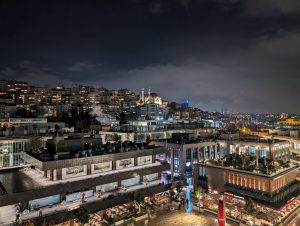A top State Department official said the government’s abrupt scuttling of people-to-people travel to Cuba, move that effectively halted U.S. cruise travel to the Caribbean island, was a “national security” issue, even as cruise lines and Caribbean destinations continued to adjust to the new travel landscape.
Speaking as part of a panel discussion at the World Travel & Tourism Council’s North American Leaders Forum Tuesday in New York, Phillip Lovas said, “The Cuba decision was a national security decision.
Lovas said the policy would not halt travel to Cuba among the island’s natives and descendants living in the US. “The policy that was not designed for Cuban people, because you can still go by air,” he said. “[It] was designed for what the State Department has described as ‘veiled tourism.’”
MORE Impacting Travel
Lovas said the proceeds from cruise deployment around the island were directed primarily to the Cuban military. As a result, “the administration made a decision. It was a well-thought-out decision they made based on national security issues,” he said.
“If there is a national security issue anywhere the world, the administration acts in the best interests of the United States,” Lovas said.
Lovas was challenged by panel moderator Richard Quest, host of CNN’s International’s financial program Quest Means Business, to account for both the end of cruise travel to Cuba as well as sudden nature of the policy change.
Quest described the changes as occurring “overnight” and added that the move harshly impacts “major companies who have fixed capital assets employing tens of thousands of people.”
He continued, “You have a previous administration opening up Cuba [and] the next administration overnight virtually closes it down. Whether or not that’s good geo-politics I’ll leave to you. But it certainly doesn’t help the tourism industry.”
In fact, quoting Cruise Lines International Association data, panelist Arnold Donald, CEO of Carnival Corporation, said the withdrawal from Cuba collectively impacted more than 620 cruise ship calls and 800,000 passengers.
“When Cuba [cruises were] shut down they were shut down immediately, without any time to prepare,” Arnold said. “There were a whole lot of people who were going to Cuba. That’s not to say you can’t still go to Cuba. There are other ways. But there were a lot of calls that were dealt with. Those kinds of things impact our business.”
Indeed, Henry Harteveldt, a travel analyst with Atmosphere Research Group, said in an Associated Press report the shutdown would have “a noticeable impact on the cruise lines’ earnings this quarter and the rest of this year and likely into 2020.”
Although Cuba voyages represented a fraction of itineraries for major cruise operators, including three to four percent for Norwegian Cruise Line Holdings and less than that for Royal Caribbean Cruises Ltd. and Carnival, Cuban itineraries commanded prices up to 20 percent above cruises to the Bahamas, said UBS analysts.
Donald stressed he was “not challenging” the government’s decision, but contended that “Cruise guests actually were engaging in cultural exchange with the Cuban people.” He added that while the move hurt the company’s profits and disappointed thousands of passengers, ordinary Cuban people were the real losers in the cruise shutdown.
“It was absolutely positive for the Cuban people, whether it’s the small craft-maker or the small restaurant owner,” said Donald. “There’s no question this impacts them.”
In addition to cruise lines and Cuban citizens, Caribbean destinations are also feeling the impact of the Cuba cruise shutdown as some islands are reporting cruise lines are shifting itineraries to replace the banned Cuba calls.
Meanwhile, Cayman Islands port officials have fielded cruise-line requests for ships destined for Cuban ports to re-route to Cayman.




















